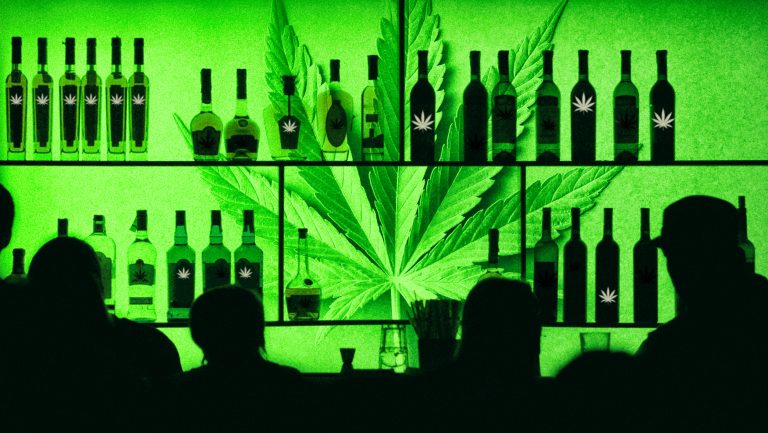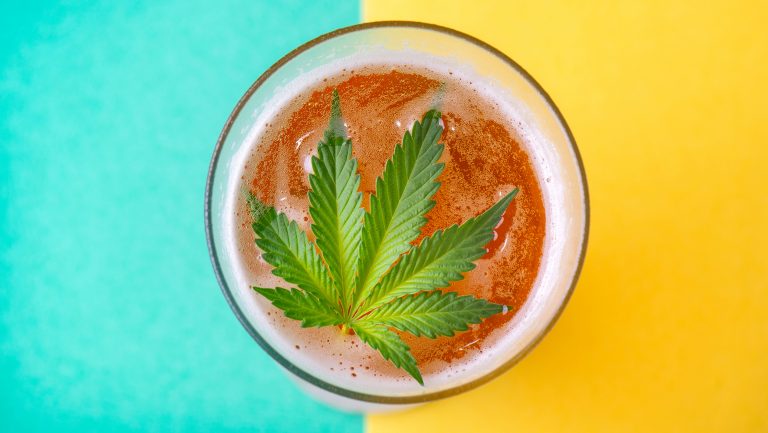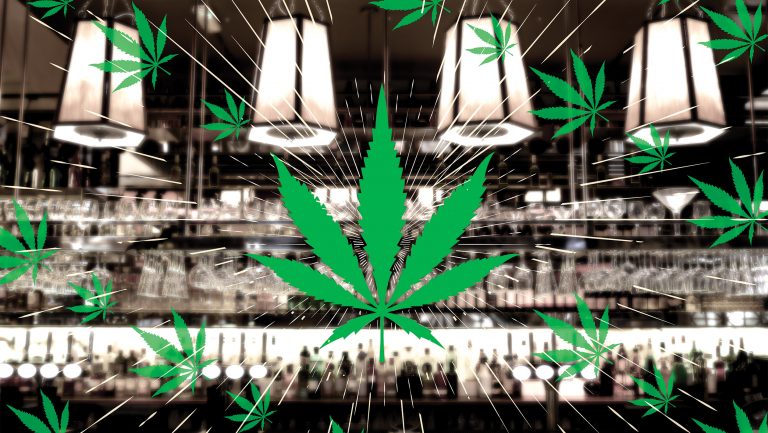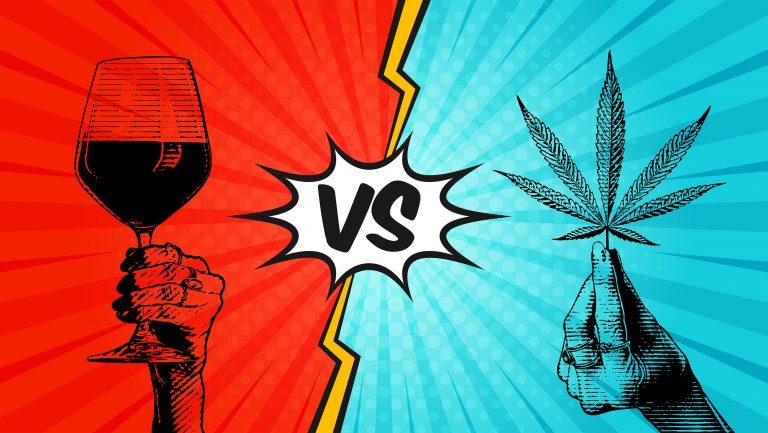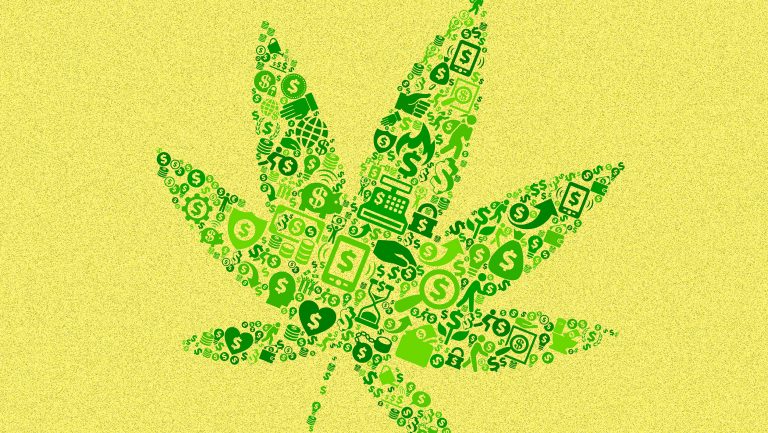The green rush is upon us. Overall marijuana sales in the United States amounted to approximately $9 billion in 2017, according to BDS Analytics, a market research company in Boulder, Colorado, that specializes in tracking cannabis; sales of hemp products for the same period hovered at just under $1 billion, according to the Hemp Business Journal. The U.S. is witnessing widespread interest in, and legalization of, cannabis in a variety of forms: medicinal, recreational, and nutraceutical. Alcohol beverage companies are scrambling to stake their claims, get involved early, and find their niches. As cannabis laws evolve and marijuana’s popularity grows and becomes more mainstream, it’s no surprise that we’re seeing a rise of alcohol products produced with parts of this notorious plant. Yet with federal prohibition, trying to navigate and comply with alcohol and cannabis regulations can leave someone in need of a drink—or a smoke.
Cannabis and Federal Law
First, the basics: The cannabis plant contains many chemical compounds, including more than 100 cannabinoids—cannabidiol (CBD) is the most common, and tetrahydrocannabinol (THC) is the primary psychoactive cannabinoid. Cannabis also contains numerous terpenes, which provide the distinctive aromatic and flavor profiles of marijuana. Hemp and marijuana are both derived from Cannabis sativa L., but they are different varieties that are grown for different purposes. Hemp contains only trace amounts of THC (less than .3 percent), essentially making any psychoactive effect impossible. It’s used mainly in industrial products (walk down any aisle in Whole Foods and you’ll probably find a product made from hemp). Marijuana, on the other hand, is significantly higher in THC (5 to 35 percent) and is primarily used for its psychoactive properties.
Of great popularity and interest today—for beverage producers and consumers alike—are cannabinoid-rich varieties of industrial hemp that contain CBD and the full spectrum of other cannabinoids, with very little, if any, THC. These full-spectrum varieties are understood to interact with the human body’s endocannabinoid system in such a way as to offer users, at least anecdotally, various general health and wellness benefits, including pain relief, anti-inflammatory therapy, and epilepsy treatment. These claimed benefits, though, make it a drug. It’s important to note that CBD is a nonpsychoactive cannabinoid and possesses no addictive effects (as acknowledged by the National Institute on Drug Abuse) and no potential for dependence (as acknowledged by the World Health Organization).

Don’t miss the latest drinks industry news and insights. Sign up for our award-winning newsletters and get insider intel, resources, and trends delivered to your inbox every week.
Recently, the U.S. Drug Enforcement Administration (DEA) established a drug code to track “marijuana extract,” which the DEA considers to be a Schedule I controlled substance—it includes any one or more cannabinoid(s) extracted from the Cannabis sativa L. plant, such as CBD. However, in a statement issued by the DEA for clarification purposes, the agency noted that “if a product consisted solely of parts of the cannabis plant excluded from the [Controlled Substances Act] definition of marijuana, such product would not be included in this new drug code [for marijuana extract] or in the drug code for marijuana.” Notably, a court recently held that the DEA does not have authority over industrial hemp, to the extent provided for in Section 7606 of the Agricultural Act of 2014 (otherwise known as the Farm Bill).
The Intersection Between Cannabis and Alcohol
The interest of alcohol producers in exploring the use of the cannabis plant in their products is nothing new (nearly 100 labels have been approved since the TTB’s Hemp Policy was released in 2000). An early applicant was Dad & Dudes Breweria in Aurora, Colorado, which produced and marketed a beer rich in hemp derivatives, including CBD. After Dad & Dudes initially received approval from the TTB, the TTB reversed its decision, citing the DEA’s position that marijuana derivatives like CBD—even if nonpsychoactive—are Schedule 1 controlled substances, just like marijuana. As a result, the TTB asked Dad & Dudes to surrender its approved label. Dad & Dudes refused, but said it would not produce the beer. Things haven’t moved much since then.
For alcohol producers with current licenses, the TTB’s Hemp Policy dictates how manufacturers may use hemp in their alcohol products. The 2000 policy outlines the requirements for formulas and processes producers may use. The TTB also established its stance that the use of hemp derivatives in alcohol products is generally permissible, with some limitations. The full hemp policy is available on the TTB’s website. There are no proposed or planned changes to this nearly 20-year-old policy, according to Thomas Hogue, the TTB’s director of Public Affairs.
When submitting formulas and labels for approval for any alcohol product, but especially those containing hemp derivatives, producers must plan ahead. “It took us almost 17 months from start to finish,” says Ram Ramcharran, Ph.D., the CEO of Fat Dog Spirits in Tampa, Florida, which produces Nirvana hemp-seed vodka and gin. In seeking approval for an alcohol beverage product with hemp, producers must submit an analysis conducted by a U.S. lab of the hemp component (oil, seeds, et cetera) that will be used in the product, specifying the amount of THC detected, if any, and also specifying the lowest level of THC that could be detected by that particular laboratory. A detailed description of the method of analysis used by the lab to test the hemp component must also be provided. The TTB has stated that all new formulas and statements of process for an alcohol beverage containing hemp or a hemp component “cannot contain a controlled substance.” Producers need to ensure that once the hemp components are tested for controlled substances, detailed records must be kept at the manufacturing premises for inspection. “The TTB came to check our records within our first month,” recalls Peter Caciola, the president of Colorado Gold Distillery in Colorado Springs, which produces Colorado High Vodka.
Many hemp-alcohol producers want to capitalize on cannabis. Unfortunately, labels for alcohol that contain hemp or hemp components, according to the Hemp Policy, certainly cannot say CBD and cannot feature the term hemp (even in the brand name), except when it is specifically stated in an approved statement of composition—for example, an IPA “brewed with hemp seeds,” or a vodka “distilled with hemp seeds.” In addition, the Hemp Policy prohibits producers from using “depictions, graphics, designs, devices, puffery, statements, slang, representations, et cetera, implying or referencing the presence of hemp, marijuana, any other controlled substance; or any psychoactive effects.” However, based on labels approved so far, there appears to be some wiggle room and potential for arguments over interpretation to be made. Examples are being withheld here, however, to protect the guilty. (After all, you know what they say about snitches.)
Producers using the term CBD or other references to cannabinoids need to understand that some government agencies—including the DEA and the TTB—interpret it as unlawful. So you may want to lay off the CBD for the time being. That doesn’t mean things won’t change—or that you shouldn’t be prepared for when they do. Fat Dog’s Ramcharran, for example, has his bases covered: “We submitted a formula with CBD, and THC, so we have them in the system for when the rules change.”

Dispatch
Sign up for our award-winning newsletter
Don’t miss the latest drinks industry news and insights—delivered to your inbox every week.
Ryan Malkin is principal attorney at Malkin Law, P.A., a law firm serving the alcohol beverage industry. Nothing in this article is intended to be and should not be construed as specific legal advice.

